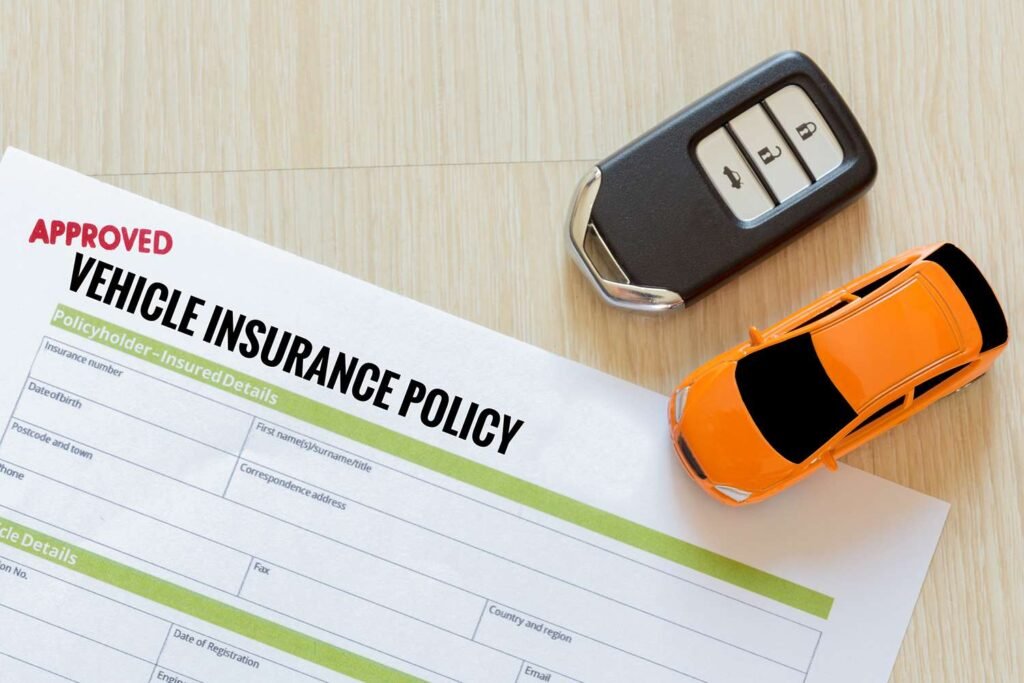INSURANCE BLOGS
IN QUE
EXPLORE LATEST BLOGS
Unlike liability-only insurance, full coverage is not a single type of policy. It’s a package that
includes:
1. Liability Insurance – This is required in most states and covers damages to other people and
their property if you’re at fault in an accident.
2. Collision Insurance – Pays for repairs or replacement of your car if it's damaged in an accident,
regardless of who was at fault.
Many people believe they don’t need a health insurance agent near me because they can just search online for a plan. They assume they’ll get the best deal by comparing prices on their own.
But here’s the reality—health insurance is confusing.
Between deductibles, copays, networks, and coverage limits, it’s easy to pick the wrong plan and end up paying too much or gettingstuck with coverage that doesn’t meet your needs.
1.1 Full Coverage = A Combination of Three Coverages
Unlike liability-only insurance, full coverage is not a single type of policy. It’s a package that includes:
- Liability Insurance – This is required in most states and covers damages to other people and their property if you’re at fault in an accident.
- Collision Insurance – Pays for repairs or replacement of your car if it’s damaged in an accident, regardless of who was at fault.
- Comprehensive Insurance – Covers non-collision incidents like theft, vandalism, floods, fire, hail, or hitting an animal.
Most people believe pet insurance is a waste of money—until they’re hit with a surprise $5,000 vet bill. That’s when reality sets in. Pet insurance isn’t just about saving money; it’s about protecting your pet from unexpected emergencies.
Many pet owners assume they’ll never need it. But what happens if your dog swallows a toy, or your cat is diagnosed with diabetes? Veterinary costs are rising fast, and even a minor accident can cost thousands of dollars.
So, is pet insurance really worth it? In this guide, we’ll break down how pet insurance works, what it covers, and whether it’s the right choice for your furry friend.
A lot of people think their insurance card policy number is just another random string of numbers. But that’s not true. This number is the key to your insurance coverage—without it, you could face delays in medical treatments, car repairs, or claims processing.
So, what exactly is a policy number on an insurance card, and why does it matter? Whether it’s health insurance, car insurance, or dental insurance, your policy number is the unique identifier that links you to your coverage. It’s like a fingerprint for your insurance policy—no two are the same.
In this guide, we’ll break down where to find your policy number, how to recognise it, and why it’s important.

Introduction: Why Full Coverage Doesn’t Have to Be Expensive
Most people think full coverage car insurance is crazy expensive. They assume if you want full protection, you’ll have to pay top dollar every month. But that’s not the full story.
The truth is, you can get cheap full coverage car insurance without breaking the bank—if you know where to look. The problem? Most drivers don’t realize there are ways to lower their full coverage car insurance premium fast without sacrificing protection.
If you’re tired of overpaying and want affordable full coverage auto insurance, you’re in the right place. In this guide, I’ll break down exactly what full coverage means, what it covers (and what it doesn’t), and why it doesn’t have to drain your wallet.
Let’s dive in.
Most People Get This Wrong About Cheap Car Insurance in Florida
Let’s get one thing straight—finding the cheapest car insurance in Florida doesn’t mean settling for bad coverage. A lot of people think “cheap” means cutting corners or risking huge out-of-pocket costs in case of an accident. But that’s not true.
You can still get affordable car insurance in Florida that meets state requirements, protects you financially, and doesn’t break the bank. The key? Knowing where to look, what factors affect your rates, and which tricks actually work to lower your premium.
This guide will walk you through everything you need to know to find low-cost auto insurance in FL without sacrificing quality.


Introduction
Most people believe that finding the cheapest car insurance in Texas means sacrificing coverage or dealing with shady insurance companies. That’s simply not true! You don’t have to settle for bad service or leave yourself underinsured just to save money.
The truth is, car insurance rates in Texas can be affordable—if you know where to look and how to shop smart. Whether you’re a young driver, a senior, or someone with bad credit, there are plenty of ways to lower your car insurance premiums without compromising on protection.
In this guide, I’ll break down proven strategies to help you get low-cost auto insurance in Texas while still staying covered. But first, let’s talk about why car insurance is so expensive in Texas and what’s really driving up those rates.
Introduction: Can You Really Get Very Cheap Car Insurance with No Deposit?
Let’s clear something up right away—“no deposit” doesn’t mean you drive off without paying a dime. Many people think they can get car insurance without spending anything upfront, but that’s not exactly how it works. Insurance companies don’t let you skip payments entirely; they just offer monthly installments instead of a big upfront cost.
Now, does that mean you can still find very cheap car insurance with no deposit? Absolutely! If you know where to look and how to shop smart, you can get low-cost car insurance without an upfront payment that fits your budget. In this guide, we’ll break it all down—how no-deposit car insurance works, who qualifies, and how to find the best deal.


Introduction: Why You Need a Health Insurance Broker
Many people think that finding health insurance is as simple as going online, comparing a few plans, and signing up. But here’s the reality—health insurance is complicated. The wrong choice can cost you thousands of dollars, leave you with poor coverage, or create unexpected gaps in care.
That’s where a health insurance broker near me comes in. Instead of struggling to understand deductibles, networks, and premiums on your own, a broker simplifies everything. They help you find a plan that actually works for you—without the stress of decoding insurance jargon.
In this guide, we’ll walk you through exactly what a local health insurance agent does, why they’re a game-changer, and how to choose the right one.





